Say Goodbye to Cling Film: Sustainable Alternatives for Fridge Food Storage
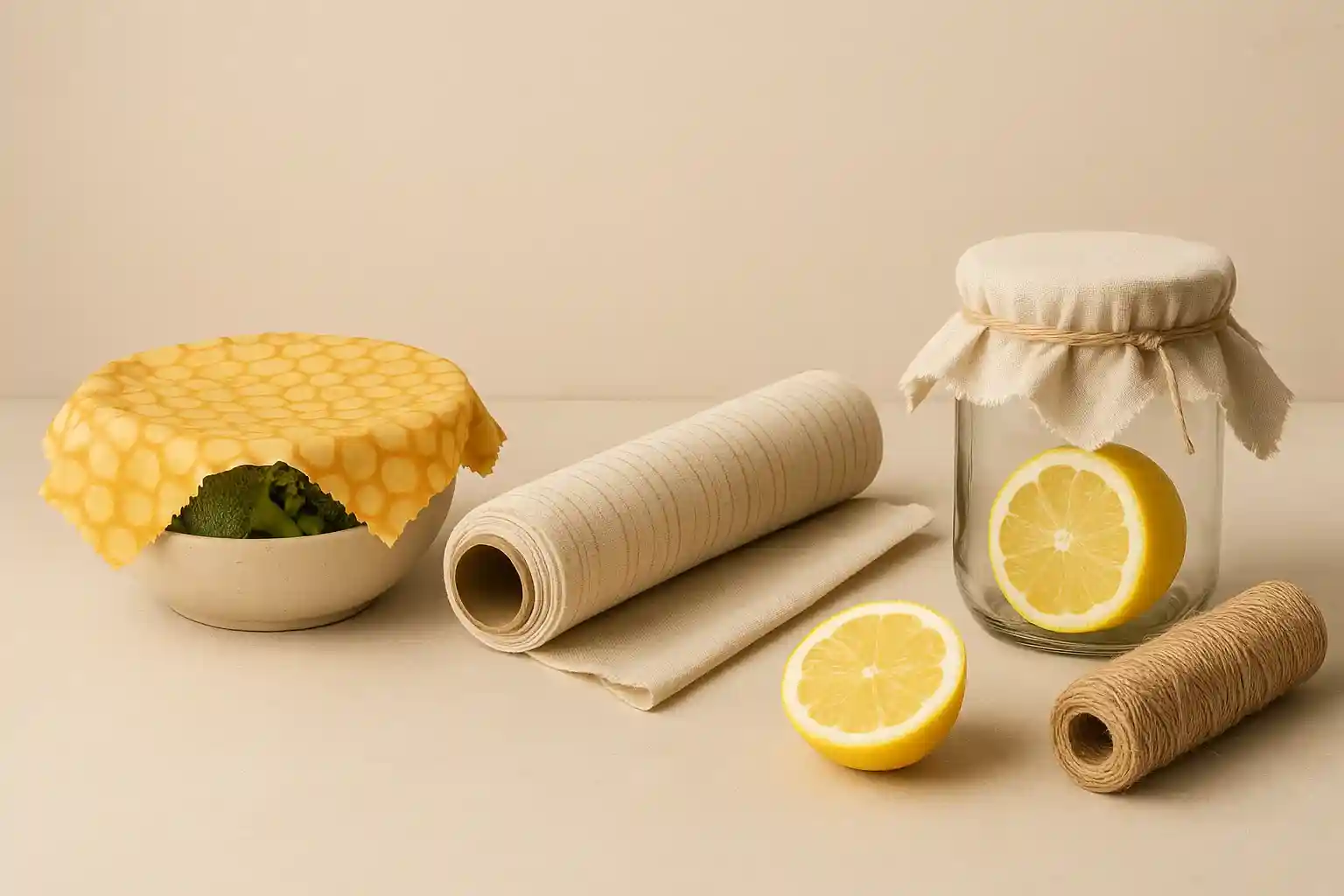
The act of preserving leftovers and keeping food fresh in the refrigerator has long been synonymous with the use of cling film, a thin, transparent plastic wrap that seems indispensable for sealing bowls, covering plates, and wrapping individual items. However, the convenience offered by this ubiquitous kitchen staple comes at a significant environmental cost. Single-use plastic wrap contributes substantially to the ever-growing problem of plastic waste, its short lifespan followed by centuries of persistence in landfills. The tangled mess that often ensues when trying to dispense and use cling film is a minor frustration compared to the major environmental impact of its widespread disposal. Embracing a zero-waste kitchen necessitates a conscious shift away from this disposable product towards more sustainable and reusable alternatives for fridge food storage.
The lifecycle of cling film is a prime example of linear consumption. Derived from fossil fuels, its production is energy-intensive, and its fate after a brief period of use is almost invariably the trash can. Its thin and often food-contaminated nature makes it exceedingly difficult to recycle effectively. The sheer volume of cling film used globally each day results in a staggering amount of waste that persists in the environment for centuries, breaking down into harmful microplastics that contaminate our soil, water, and even the air we breathe. Recognizing this unsustainable pattern, many individuals are seeking more responsible and eco-conscious ways to store their food in the refrigerator without contributing to this pervasive plastic pollution.
Fortunately, a variety of effective and readily available alternatives can easily replace single-use cling film for fridge food storage. By embracing glass lidded containers, utilizing versatile silicone stretch lids, and opting for reusable beeswax wraps, we can significantly reduce our kitchen waste and adopt a more sustainable approach to keeping our food fresh. These reusable options not only minimize our impact on the planet but can also often enhance the freshness and organization of our refrigerated items.
Sealing Leftovers Sustainably: Exploring Zero-Waste Fridge Storage Solutions
Moving beyond the convenience of single-use cling film opens up a world of more environmentally friendly and often more effective ways to store food in your refrigerator:
Glass Lidded Containers: The Stackable and See-Through Solution
Glass containers with airtight lids offer a fantastic and highly sustainable solution for storing leftovers, prepared meals, and cut fruits and vegetables in the refrigerator. The transparency of glass allows you to easily identify the contents, reducing food waste from forgotten items. Glass is inert, meaning it won't leach harmful chemicals into your food, and it can be washed and reused indefinitely. Investing in a set of various sizes of glass containers with secure lids eliminates the need for cling film and provides a durable and organized fridge storage system.
Silicone Stretch Lids: The Adaptable and Reusable Cover
Silicone stretch lids provide a versatile and reusable alternative for covering bowls, plates, and oddly shaped containers in the refrigerator. Made from food-grade silicone, these lids are flexible and stretchable, allowing them to create a tight seal over a variety of sizes and shapes without the need for single-use plastic wrap. Silicone is durable, easy to clean, and can be used repeatedly, making it a zero-waste option for keeping leftovers fresh.
Reusable Wax Wraps: The Moldable and Natural Seal
Reusable wax wraps, made from fabric coated with beeswax, plant-based wax, or a combination thereof, offer a natural and biodegradable alternative to cling film for wrapping individual food items like cheese, sandwiches, and cut produce, as well as covering bowls and plates in the refrigerator. The warmth of your hands softens the wrap, allowing you to mold it to create a breathable seal. Brands like Bee's Wrap and Etee offer various sizes and types of these reusable wraps. With proper care, beeswax and other wax wraps can last for many months, replacing countless rolls of plastic wrap.
Embracing a Zero-Waste Fridge: Mindful Food Storage Habits
By consciously choosing glass lidded containers, silicone stretch lids, and reusable wax wraps over single-use cling film, we can significantly reduce the amount of plastic waste generated in our kitchens and embrace a more sustainable approach to food storage in the refrigerator. These durable and reusable alternatives not only benefit the environment but also contribute to a more organized and eco-conscious culinary routine.
Related Blogs
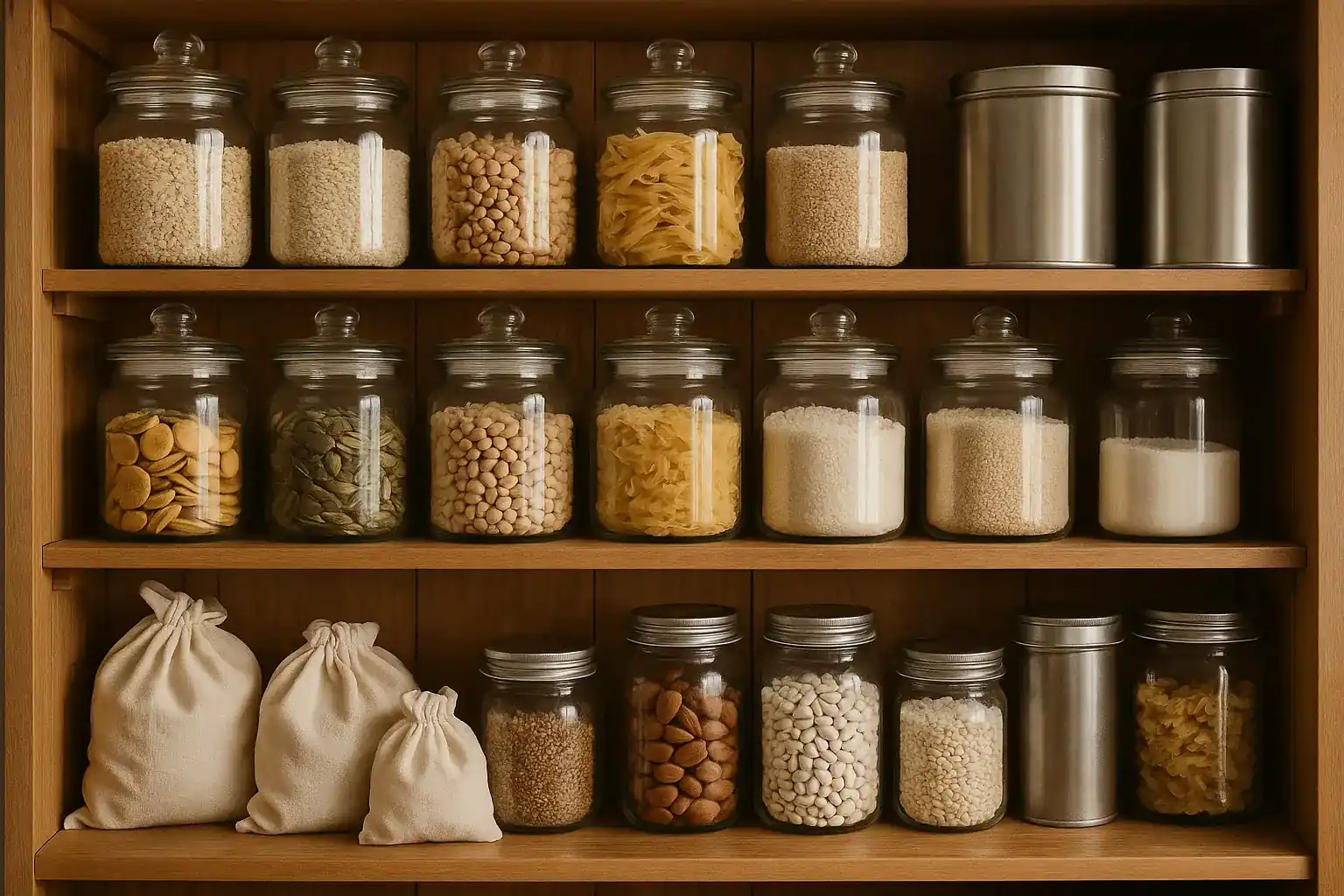
Say Goodbye to Single-Use: 10 Easy Swaps for a Plastic-Free Pantry
Insights on 10 easy swaps for a plastic-free pantry in a sustainable way.
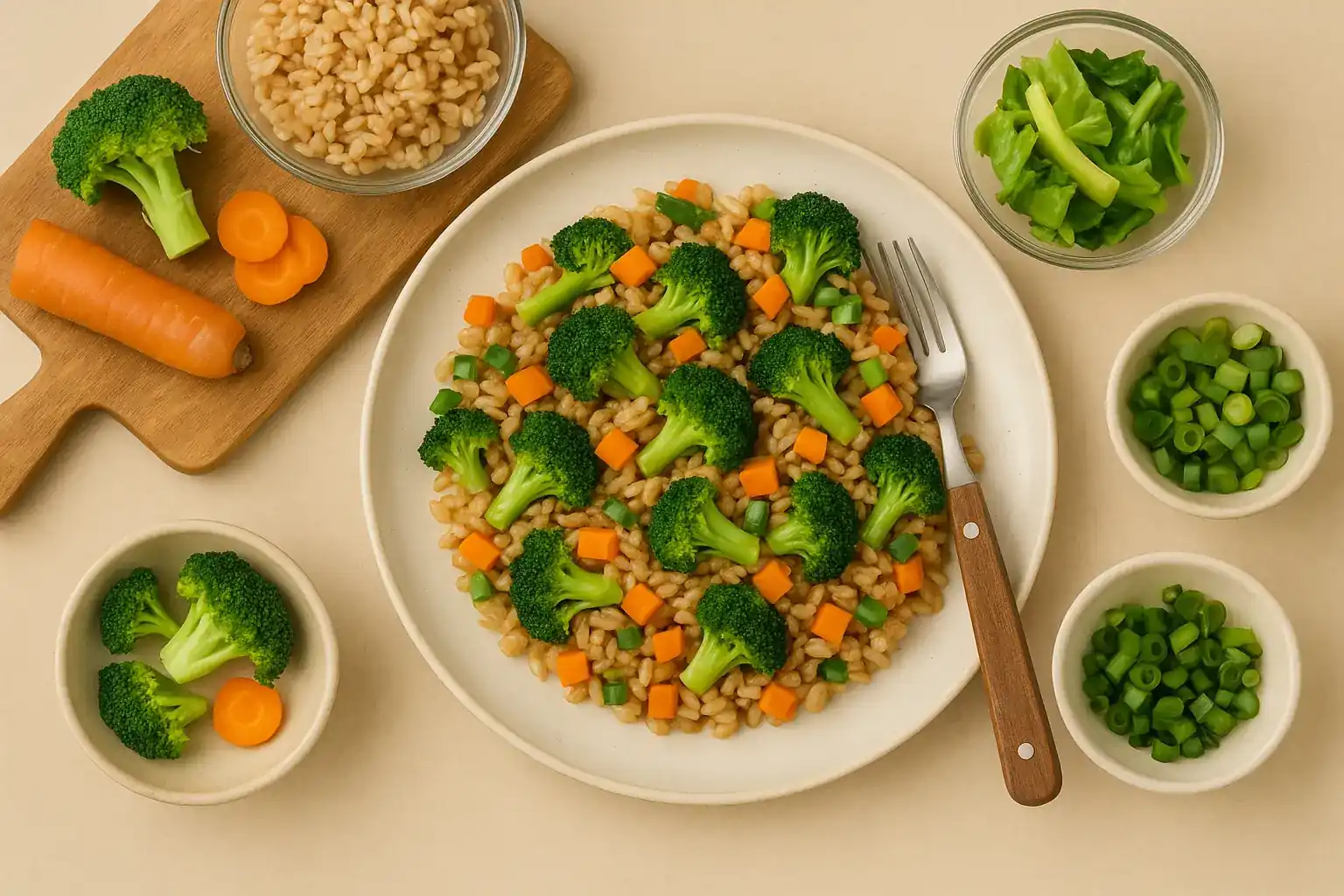
A Week of Delicious Transformations: Zero-Waste Recipes Using Your Leftovers
Insights on a week of zero-waste recipes using leftovers in a sustainable way.
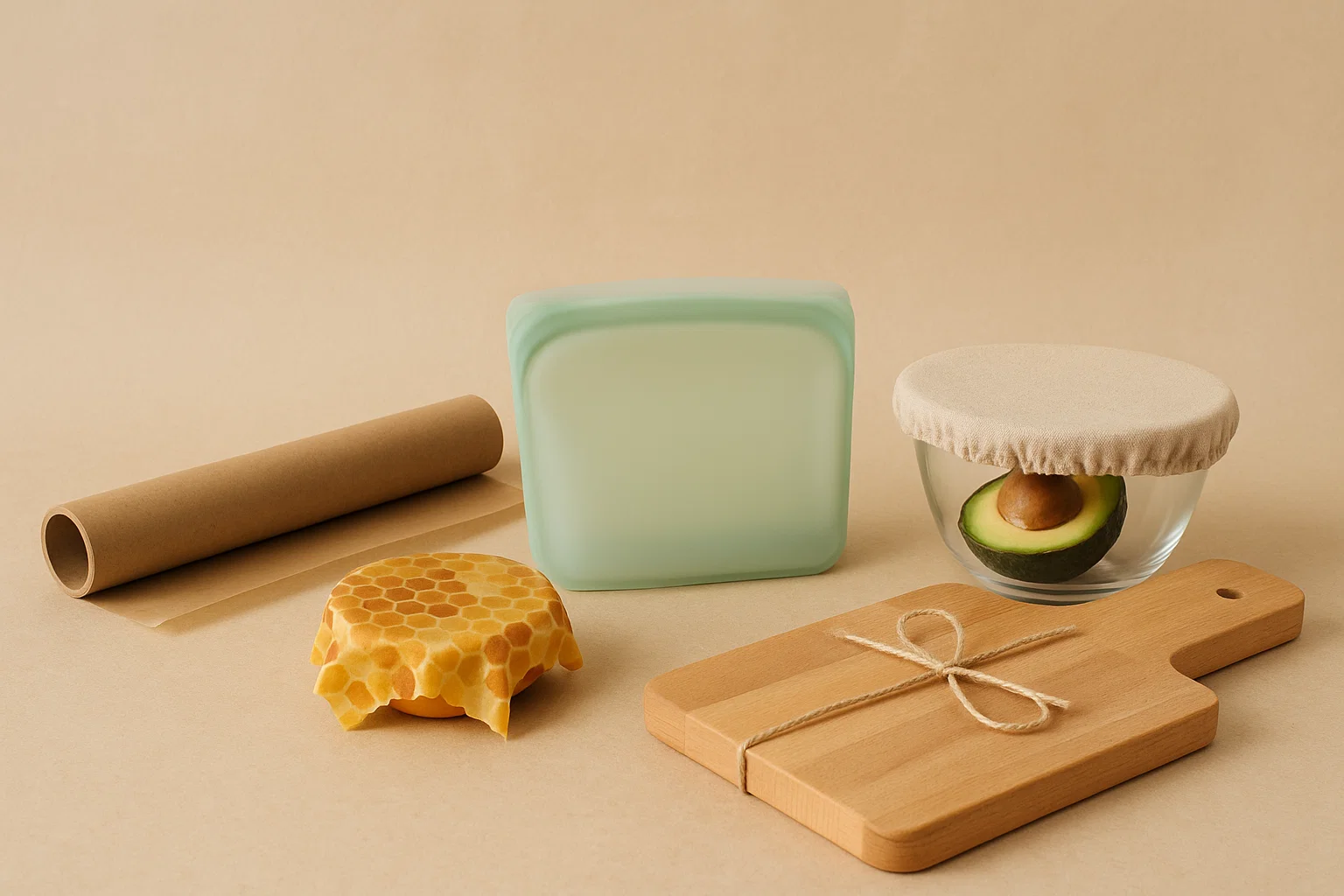
Beyond the Foil: Reusable Alternatives for Sustainable Baking and Food Storage
Opt for reusable silicone baking mats, covered bakeware, and beeswax wraps instead of aluminum foil.
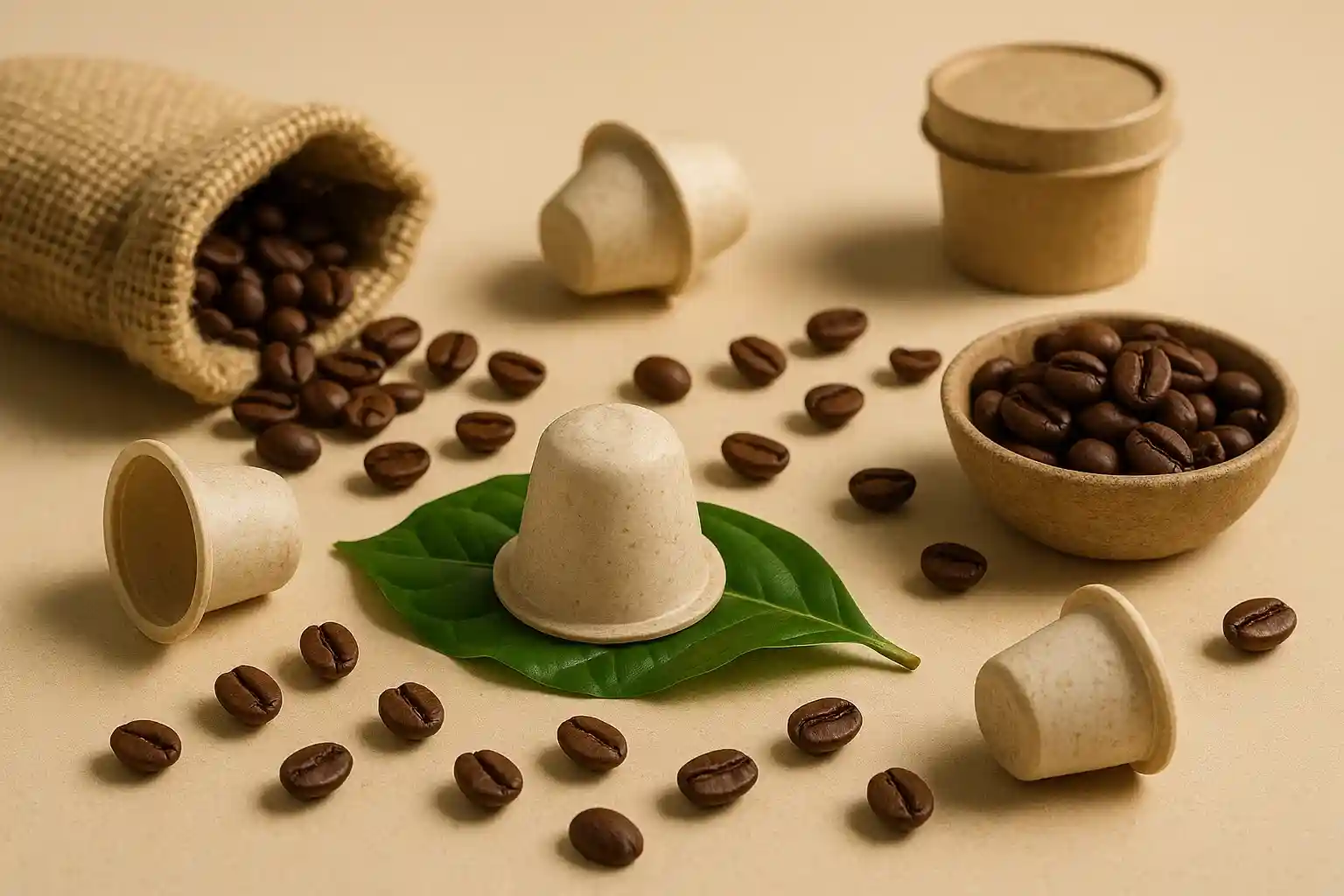
Brew Better, Waste Less: Sustainable Alternatives to Single-Use Coffee Pods
Lower waste and enjoy better flavor with reusable pods, French presses, or Moka pots.
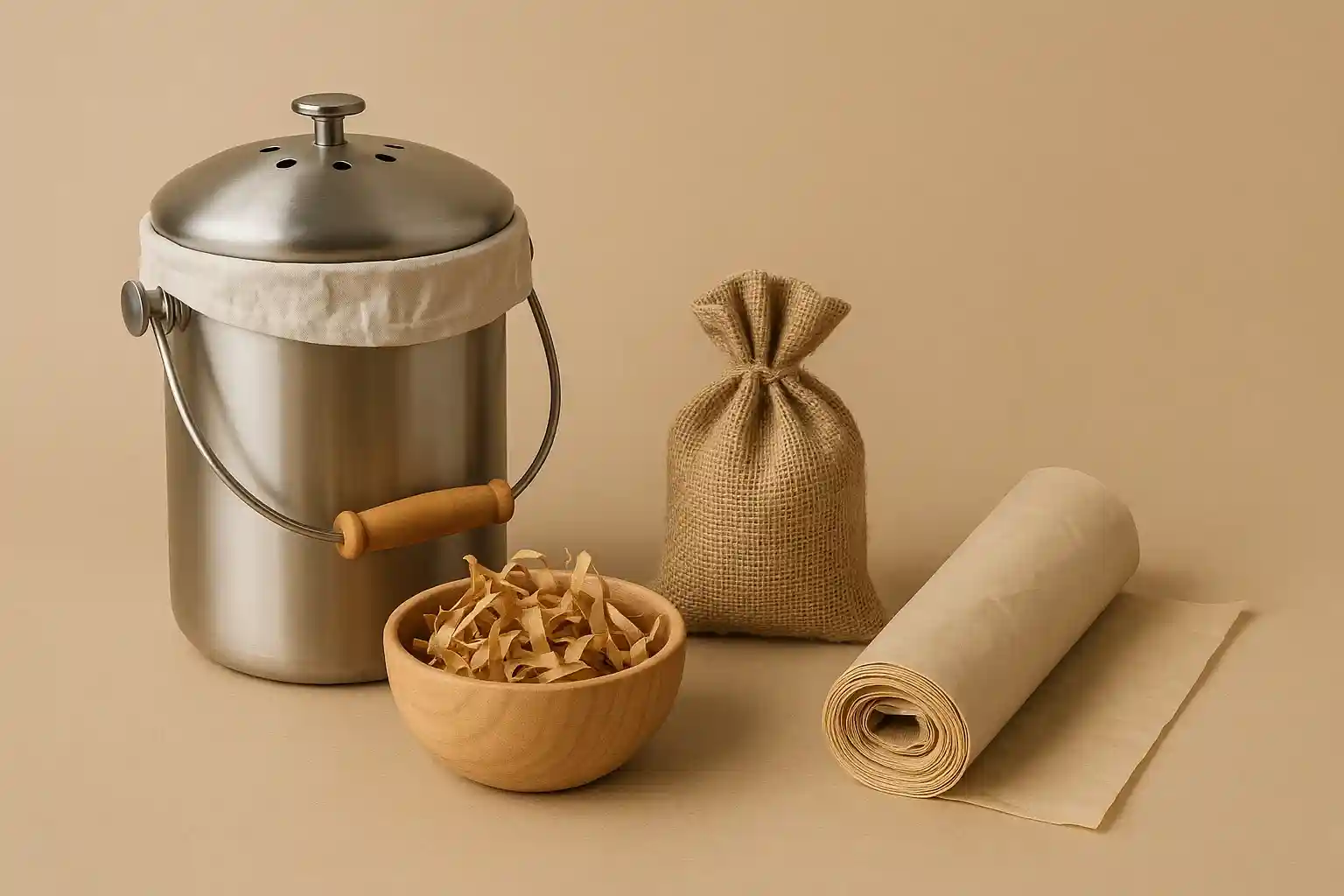
Compost Without the Carry-On: Sustainable Alternatives to Store-Bought Compost Bags
Reduce unnecessary plastic in composting with newspaper liners, bag-free bins, or DIY liners.
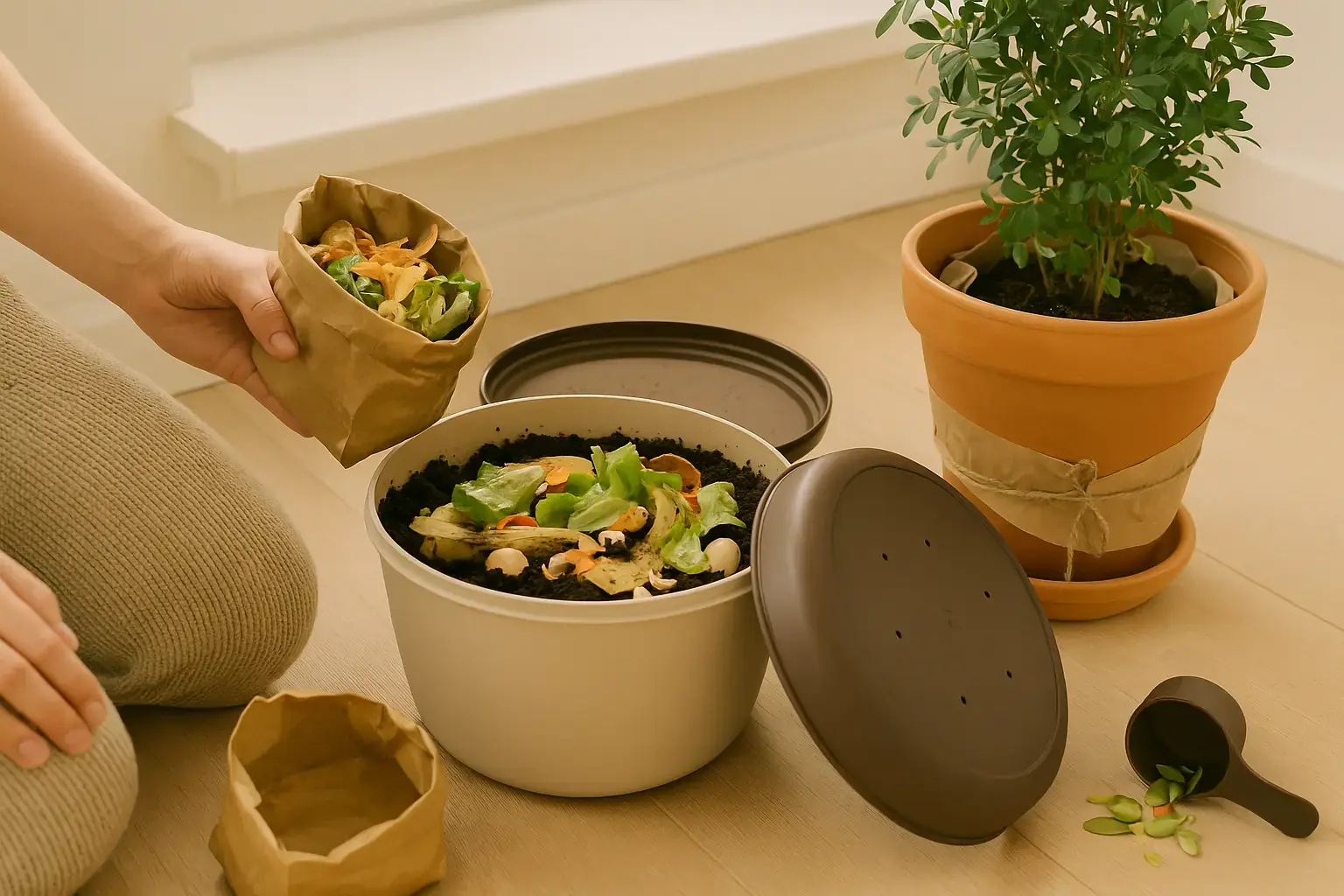
Compost Happens (Even in Apartments!): Your Beginner's Guide
Practical advice and actionable tips for composting 101.
Stay in the Loop
Get tips and insights tailored to your interests — no spam, just sustainability.